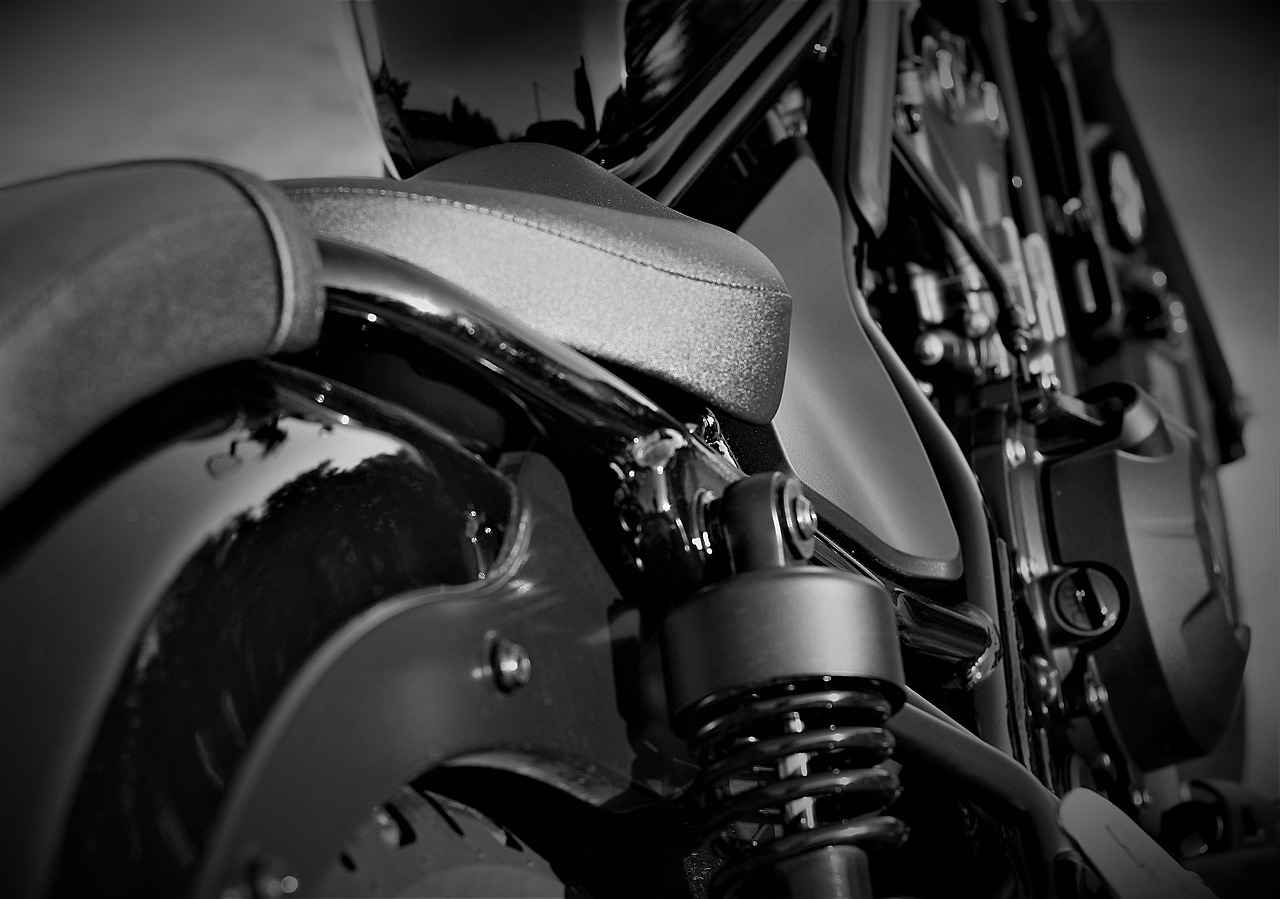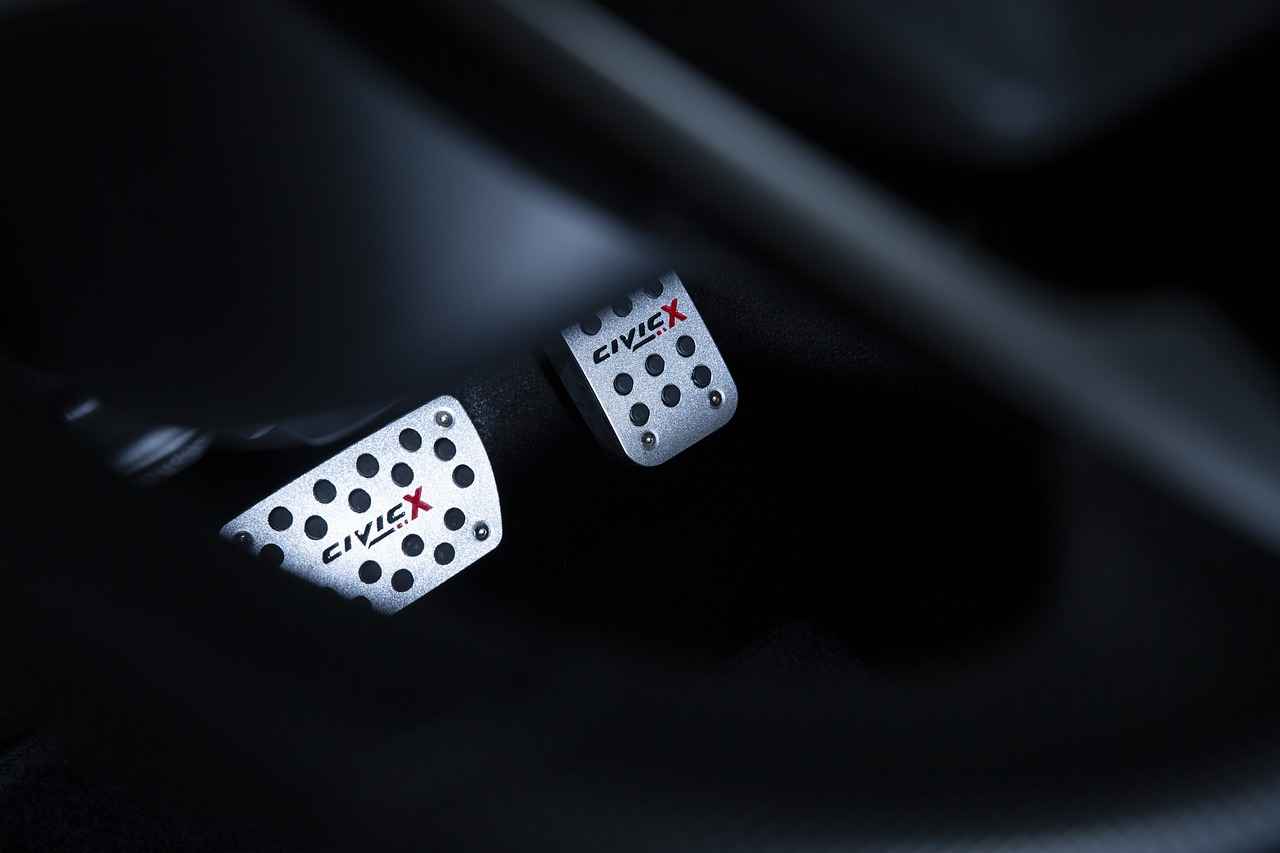The Honda Accord is a staple in the midsize sedan market, renowned for its blend of performance, comfort, and safety. A critical aspect that often influences these qualities is the vehicle’s weight. This article delves into the weight of various Honda Accord models, examining how weight affects performance, fuel efficiency, and safety features. By understanding these dynamics, prospective buyers can make informed decisions about this popular vehicle.
The average weight of a Honda Accord typically ranges from 3,200 to 3,600 pounds, depending on the model year and trim level. For instance, the latest models may weigh slightly more due to added features and safety enhancements. Knowing the average weight helps potential buyers gauge how it might affect performance and handling.
When evaluating the Honda Accord’s weight against other sedans, several factors come into play, such as size and materials. For example, the Toyota Camry and Nissan Altima often fall within a similar weight range, leading to comparable performance metrics. This section highlights how the Accord stands against its competitors.
The Toyota Camry generally shares a weight range with the Honda Accord. Both vehicles exhibit similar handling characteristics, yet the slight differences in weight can influence fuel efficiency and acceleration. For instance, a lighter model may offer better MPG ratings.
Similarly, the Nissan Altima has a comparable weight profile. This section explores how both vehicles manage weight distribution, impacting driving dynamics and overall performance. A heavier vehicle might feel more stable but could sacrifice agility.
The relationship between weight and fuel efficiency is crucial. Heavier vehicles often consume more fuel, especially during acceleration. This section examines how various Honda Accord models perform in terms of miles per gallon (MPG) ratings.
A heavier Honda Accord may require more power to achieve desired acceleration. This analysis looks at how the engine’s performance varies with different weight configurations, particularly in various driving conditions.
Each model year of the Honda Accord features distinct fuel economy ratings, influenced by weight changes. For example, newer models may incorporate lighter materials, improving fuel efficiency without compromising safety.
Several components contribute to the overall weight of the Honda Accord, including safety features, technology, and the materials used in construction. Understanding these factors aids buyers in making informed choices.
Modern safety technologies, such as advanced airbag systems and reinforced structures, add weight. However, these enhancements significantly improve safety, making the trade-off worthwhile.
The integration of technology and comfort features also increases weight. This exploration discusses how these additions enhance the driving experience while influencing the vehicle’s overall performance.
Different trims of the Honda Accord come with varying features that lead to weight differences. This section provides insights into the weight of popular trims, helping buyers choose based on their preferences.
The Sport and Touring trims of the Honda Accord offer distinct features that influence weight. Understanding these differences helps potential buyers weigh the trade-offs between performance and luxury.
Hybrid versions of the Honda Accord often weigh differently due to battery systems. This section discusses how the weight of hybrid models affects performance and efficiency, providing insights for eco-conscious buyers.
The weight of the Honda Accord significantly influences its handling and stability. This section examines how the vehicle’s weight affects driving dynamics and overall safety.
A heavier vehicle may handle differently in corners. This analysis looks at how the Honda Accord’s weight impacts its cornering capabilities and overall maneuverability.
Weight plays a crucial role in vehicle stability at high speeds. This section discusses how the Honda Accord maintains control and stability during highway driving, ensuring a safe and comfortable ride.
Understanding the weight of the Honda Accord is essential for owners regarding maintenance, performance, and safety. This section provides practical insights for current and prospective owners.
The weight of a vehicle can influence tire wear rates. This section discusses how Honda Accord owners can manage tire maintenance based on the car’s weight, ensuring longevity and performance.
Knowing the weight of the Honda Accord helps owners understand its load capacity and towing capabilities. This section provides guidance on safe towing practices for Accord owners, ensuring they make the most of their vehicle.

What is the Average Weight of a Honda Accord?
The Honda Accord is one of the most popular sedans in the automotive market, known for its reliability, performance, and comfort. One of the key specifications that potential buyers often consider is the vehicle’s weight. Understanding the average weight of a Honda Accord can provide insights into its performance, handling, and even fuel efficiency. This article delves into the average weight across various model years and trims, offering a comprehensive overview for prospective buyers.
The average weight of a Honda Accord typically ranges from 3,200 to 3,600 pounds, depending on the model year and trim level. For instance, the base models tend to be on the lighter side, while higher trims with additional features and technology may weigh more. Knowing these figures is crucial for buyers as it helps in assessing the vehicle’s performance and fuel efficiency.
- 2020 Honda Accord: Approximately 3,400 pounds
- 2021 Honda Accord: Approximately 3,500 pounds
- 2022 Honda Accord: Approximately 3,600 pounds
As seen in the examples above, weight can increase slightly with each new model year, often due to the addition of enhanced safety features and technological advancements.
When comparing the Honda Accord’s weight to competitors like the Toyota Camry and Nissan Altima, it’s important to consider how weight affects driving dynamics. The Honda Accord is generally comparable in weight to these models, which also range from approximately 3,200 to 3,600 pounds. This similarity allows for a fair comparison in terms of performance and fuel economy.
Weight plays a significant role in determining a vehicle’s fuel efficiency. Heavier vehicles typically consume more fuel, as they require more power to accelerate. For the Honda Accord, the correlation between weight and miles per gallon (MPG) ratings is clear. For example, the 2022 model, which is among the heavier in the lineup, has an MPG rating that reflects its weight.
Several features contribute to the overall weight of the Honda Accord, including:
- Safety Equipment: Advanced safety features such as multiple airbags and reinforced structures add weight but enhance overall safety.
- Technology: Infotainment systems and driver-assist technologies also contribute to the vehicle’s weight.
- Comfort Features: Heated seats and premium audio systems, while enhancing comfort, can add to the overall weight.
The Honda Accord comes in various trims, each with its own set of features impacting weight. For example, the Sport trim is often lighter than the Touring trim due to fewer luxury features. Additionally, hybrid models tend to weigh differently due to battery systems, which can also influence performance and efficiency.
The weight of a vehicle significantly affects its handling and stability. A heavier Honda Accord may experience different cornering dynamics compared to lighter competitors. However, this weight can also provide improved stability at high speeds, enhancing the overall driving experience.
Understanding the weight of the Honda Accord is essential for owners. It can impact maintenance, tire wear, and load capacity. Owners should be aware that heavier vehicles may experience increased tire wear, necessitating more frequent maintenance. Additionally, knowing the weight can help in understanding the vehicle’s towing capabilities, ensuring safe practices for those who may need to tow.

How Does the Weight of the Honda Accord Compare to Other Sedans?
The weight of a vehicle plays a crucial role in its overall performance, fuel efficiency, and safety features. When it comes to the Honda Accord, understanding how its weight compares to other sedans can provide valuable insights for potential buyers. This section delves into the weight characteristics of the Honda Accord, how it stacks up against competitors, and the implications of these differences.
When evaluating the Honda Accord’s weight, it is essential to consider not only the numbers but also the size, materials, and design of the vehicle. The Accord typically weighs between 3,200 and 3,600 pounds, depending on the model year and trim. This weight range positions the Accord competitively among other popular sedans in the market.
- Toyota Camry: The Camry often falls within a similar weight range as the Accord, generally between 3,300 and 3,500 pounds. Both vehicles share comparable dimensions, which allows for a direct comparison of performance and fuel efficiency.
- Nissan Altima: The Altima’s weight also aligns closely with that of the Accord, with figures typically between 3,200 and 3,400 pounds. This similarity in weight can influence driving dynamics and overall performance.
- Hyundai Sonata: The Sonata tends to be slightly lighter, usually ranging from 3,100 to 3,400 pounds. This difference in weight may affect its acceleration and handling characteristics.
Understanding how the Honda Accord’s weight compares to its competitors can help potential buyers assess their options. For instance, a heavier vehicle like the Accord may provide a more stable ride, especially at high speeds, while lighter vehicles may offer better agility and quicker acceleration.
Moreover, the materials used in the construction of the Accord contribute to its weight. The use of high-strength steel and lightweight materials in newer models has helped maintain a competitive weight while enhancing safety features. This balance is crucial as consumers increasingly prioritize both safety and fuel efficiency.
Additionally, the design of the Honda Accord plays a significant role in its weight distribution. A well-balanced vehicle can improve handling and stability, making the Accord a popular choice for those seeking a reliable sedan. The weight distribution also affects how the vehicle responds during cornering and braking, crucial factors for driving enthusiasts.
In terms of fuel efficiency, the weight of the Accord may influence its miles per gallon (MPG) ratings. Generally, heavier vehicles require more power to accelerate, which can lead to decreased fuel efficiency. However, Honda has engineered the Accord to optimize its performance, ensuring that it remains competitive in its class.
In conclusion, the Honda Accord’s weight is an essential factor when comparing it to other sedans. By considering the weight alongside other attributes such as size, materials, and design, potential buyers can make informed decisions. The Accord’s competitive weight, combined with its reputation for reliability and safety, makes it a compelling choice in the sedan market.
Comparison with Toyota Camry
The Toyota Camry is often regarded as one of the most formidable competitors to the Honda Accord. Both vehicles appeal to a broad audience due to their reliability, performance, and comfort. When we delve into the weight comparison between these two sedans, it becomes evident how closely they align in terms of specifications and performance metrics.
The average weight of the Honda Accord typically ranges from 3,200 to 3,600 pounds, depending on the model year and trim. In comparison, the Toyota Camry also falls within a similar weight range, generally between 3,300 and 3,700 pounds. This slight variance in weight is crucial as it can significantly affect both vehicles’ performance and fuel efficiency.
When comparing the performance of the Honda Accord and Toyota Camry under similar driving conditions, weight plays a pivotal role. A vehicle’s weight influences its acceleration, braking, and handling. Both cars are designed to provide a comfortable ride, but their weights can lead to different driving experiences.
- Acceleration: A lighter vehicle, like the Honda Accord, may accelerate more quickly than the slightly heavier Camry, especially during initial takeoff.
- Braking: The Camry’s additional weight can result in longer stopping distances compared to the Accord, particularly in emergency situations.
- Handling: While both vehicles are engineered for stability, the Accord’s lighter frame may offer a more agile driving experience, especially on winding roads.
Fuel efficiency is another critical factor where weight plays a significant role. Typically, lighter vehicles consume less fuel, which can be an essential consideration for buyers focused on economy. The Honda Accord often boasts better miles per gallon (MPG) ratings compared to the Toyota Camry, particularly in its hybrid variants, which are designed to maximize fuel efficiency.
Safety is a paramount concern for many buyers, and both the Honda Accord and Toyota Camry come equipped with advanced safety features. However, the additional weight of the Camry may contribute to its overall crash safety ratings. Heavier vehicles tend to perform better in crash tests, providing a sense of security for drivers and passengers alike.
In summary, while the Toyota Camry and Honda Accord are closely matched in terms of weight, each vehicle presents unique advantages and disadvantages in performance, fuel efficiency, and safety. Potential buyers should consider these factors carefully, as the choice between these two popular sedans often comes down to personal preference and driving style.
Comparison with Nissan Altima
The Nissan Altima and Honda Accord are two of the most popular sedans on the market, and one of the critical factors influencing their performance is their weight. In this section, we will delve into how the weight of the Nissan Altima compares to the Honda Accord and how it affects the overall driving experience.
The weight of the Nissan Altima typically ranges from 3,200 to 3,500 pounds, depending on the model year and trim level. Similarly, the Honda Accord falls within a comparable weight range, generally between 3,200 and 3,600 pounds. While these figures may seem close, the differences in weight can significantly impact performance and driving dynamics.
- Acceleration: A lighter vehicle often accelerates more quickly than a heavier one. While the Altima and Accord are similar in weight, slight variations can affect how each model responds when the driver accelerates.
- Handling: Weight distribution plays a vital role in how a car handles. The Accord’s weight distribution may provide it with better cornering capabilities compared to the Altima, which can feel heavier during tight turns.
- Braking: Heavier vehicles usually require more distance to stop. Therefore, understanding the weight of each model can help drivers gauge their braking performance in various conditions.
Weight is a significant factor when it comes to fuel efficiency. Heavier vehicles tend to consume more fuel, particularly during acceleration. The Nissan Altima is known for its fuel efficiency, but its weight can impact its miles per gallon (MPG) ratings. The Honda Accord, with its slightly higher weight in some trims, may experience a similar effect. Understanding these nuances helps potential buyers make informed decisions based on their driving habits.
Weight also plays a crucial role in safety. Heavier vehicles often provide better crash protection due to their mass. Both the Nissan Altima and Honda Accord come equipped with advanced safety features, but the inherent weight of each model can influence the effectiveness of these features in real-world scenarios.
In summary, while the Nissan Altima and Honda Accord have comparable weights, the differences can lead to varied driving experiences. Factors such as acceleration, handling, fuel efficiency, and safety are all influenced by the weight of these vehicles. Potential buyers should consider these elements carefully when choosing between these two popular sedans.

How Does the Weight of a Honda Accord Affect Fuel Efficiency?
The weight of a vehicle is a crucial factor that significantly influences its fuel efficiency. In the case of the Honda Accord, understanding how its weight affects miles per gallon (MPG) ratings can help potential buyers make informed decisions. This section delves into the correlation between the Honda Accord’s weight and its fuel efficiency across various models.
Fuel efficiency is primarily determined by how much energy a vehicle needs to move. Heavier vehicles require more energy, which can lead to decreased miles per gallon. This is particularly relevant for sedans like the Honda Accord, which has undergone various design changes over the years that have impacted its overall weight.
The weight of the Honda Accord varies across different model years and trims. For instance, newer models tend to incorporate advanced materials and designs that can either increase or decrease weight. Generally, the Accord weighs between 3,200 and 3,600 pounds, depending on the trim and features.
- Acceleration and Power: A heavier Honda Accord may require a more powerful engine to achieve the same acceleration as a lighter model. This can lead to increased fuel consumption.
- Driving Conditions: In city driving, where frequent stops and starts occur, the weight of the vehicle can have a more pronounced effect on fuel efficiency compared to highway driving.
- Hybrid Models: The hybrid versions of the Accord tend to weigh more due to the battery systems, which can impact their overall MPG ratings.
Each model year of the Honda Accord has different fuel economy ratings. For example:
| Model Year | Weight (lbs) | MPG (City/Highway) |
|---|---|---|
| 2020 | 3,362 | 30/38 |
| 2021 | 3,400 | 29/35 |
| 2022 | 3,500 | 28/36 |
This table illustrates the trend where increased weight can lead to a slight decrease in MPG ratings over the years.
The Honda Accord’s engine performance is closely tied to its weight. A heavier vehicle demands more power to accelerate, which can strain the engine and impact overall fuel efficiency. In contrast, lighter models can achieve better acceleration and efficiency because they require less energy to move.
In summary, the weight of the Honda Accord plays a significant role in determining its fuel efficiency. While advancements in technology and materials have helped maintain competitive MPG ratings, the intrinsic relationship between weight and fuel consumption remains a vital consideration for potential buyers. Understanding these dynamics can aid in making an informed choice when selecting a Honda Accord model that best fits your needs.
Impact of Weight on Engine Performance
The performance of a vehicle’s engine is intricately linked to its weight, especially in a popular sedan like the Honda Accord. Understanding how weight influences engine performance is crucial for both prospective buyers and current owners. In this section, we delve into the effects of weight on the Honda Accord’s engine performance, particularly under varying driving conditions.
A heavier vehicle, such as the Honda Accord, typically requires more power to achieve efficient acceleration. This is because the engine must work harder to overcome the inertia of the added weight. For instance, when comparing the standard models of the Accord, those equipped with a more powerful engine option can deliver better acceleration performance, especially when loaded with passengers or cargo.
- City Driving: In urban settings, where frequent stops and starts are common, a heavier vehicle may struggle with quick acceleration. The Honda Accord’s engine performance can feel less responsive compared to lighter competitors.
- Highway Driving: On the highway, weight can contribute to stability. A heavier Honda Accord may maintain better control at high speeds, but it may take longer to reach those speeds due to the weight factor.
- Off-Road Conditions: Although the Accord is primarily designed for on-road use, its weight can impact its handling on uneven surfaces. Heavier vehicles often exhibit reduced agility in off-road scenarios.
The Honda Accord is offered with various engine options, each designed to balance power and efficiency. The weight of the vehicle plays a significant role in how these engines perform. For example:
| Engine Type | Horsepower | Torque | Weight (Approx.) |
|---|---|---|---|
| 2.0L Turbo I4 | 252 hp | 273 lb-ft | 3,400 lbs |
| 1.5L Turbo I4 | 192 hp | 192 lb-ft | 3,200 lbs |
As shown in the table, the more powerful engine option is better suited for the heavier models of the Accord, providing the necessary torque to maintain performance despite the added weight.
Weight not only impacts acceleration but also fuel efficiency. The Honda Accord’s miles per gallon (MPG) ratings can vary significantly based on its weight. Generally, lighter models tend to achieve better fuel economy, while heavier variants may see a decrease in MPG ratings. Understanding this relationship can help owners make informed decisions about driving habits and maintenance.
Many Honda Accord owners report that the vehicle’s weight contributes to a solid and stable driving experience. While some may find the acceleration slightly less responsive due to the weight, others appreciate the enhanced stability it provides during highway cruising. This balance between performance and comfort is a key selling point for the Accord.
In summary, the weight of the Honda Accord plays a significant role in its engine performance, affecting acceleration, handling, and fuel efficiency. By understanding these dynamics, drivers can better appreciate the capabilities of their vehicle and make more informed choices regarding their driving experience.
Fuel Economy Ratings by Model Year
The fuel economy of the Honda Accord has evolved significantly over the years, reflecting advancements in technology and changes in design. Understanding how weight influences fuel efficiency can help consumers make informed choices when selecting a model year. This section delves into the fuel economy ratings by model year, highlighting how variations in weight impact these ratings.
The Honda Accord has undergone numerous changes since its inception, with each model year presenting different weight specifications. The relationship between weight and fuel economy is crucial; generally, lighter vehicles tend to achieve better fuel efficiency. The following table summarizes fuel economy ratings across various model years:
| Model Year | Weight (lbs) | Fuel Economy (MPG) |
|---|---|---|
| 2010 | 3,400 | 20/30 |
| 2015 | 3,300 | 24/34 |
| 2020 | 3,500 | 22/32 |
| 2023 | 3,600 | 29/37 |
The data indicates a trend where the Honda Accord has improved its fuel economy ratings over the years, particularly in the hybrid models. This improvement can be attributed to advancements in engine technology and the use of lighter materials, which contribute to a reduction in weight.
Several factors contribute to the fuel economy ratings of the Honda Accord, including:
- Engine Efficiency: The introduction of turbocharged engines has enhanced performance while maintaining fuel efficiency.
- Transmission Technology: The shift from traditional automatic transmissions to continuously variable transmissions (CVTs) has improved fuel economy ratings.
- Weight Reduction: Innovative materials and design strategies have allowed for weight reduction without compromising safety or comfort.
The Honda Accord is available in various trims, each with unique features and specifications that can affect weight and, consequently, fuel economy. For example, the Sport trim may weigh slightly less than the Touring trim due to fewer luxury features. This weight difference can lead to variations in MPG ratings, making it essential for buyers to consider their priorities when selecting a trim.
Hybrid models of the Honda Accord have gained popularity due to their exceptional fuel economy ratings. The integration of electric motors allows these vehicles to operate efficiently, especially in urban settings where stop-and-go traffic is common. The weight of hybrid batteries is offset by the overall efficiency gains, leading to impressive MPG figures that often surpass their gasoline counterparts.
As automotive technology continues to advance, future iterations of the Honda Accord are likely to focus even more on fuel efficiency. Innovations in electric vehicle technology and further weight reduction strategies will play a crucial role in enhancing fuel economy ratings. Consumers can expect to see continued improvements that align with environmental standards and consumer demand for more efficient vehicles.
In conclusion, understanding the weight variations and their impact on fuel economy ratings is essential for prospective Honda Accord buyers. By considering these factors, consumers can make informed decisions that align with their driving needs and environmental considerations.

What Features Contribute to the Weight of a Honda Accord?
The Honda Accord is a well-regarded sedan known for its balance of performance, comfort, and safety. However, many buyers may not realize that several features contribute to the vehicle’s overall weight. Understanding these factors can help potential owners make informed decisions when purchasing a new or used Accord.
Several elements play a significant role in determining the weight of the Honda Accord. These include:
- Safety Equipment: Modern vehicles, including the Honda Accord, are equipped with an array of safety features designed to protect passengers and enhance overall vehicle stability. Features such as advanced airbag systems, collision mitigation braking systems, and structural reinforcements add weight but are crucial for ensuring safety. For instance, the inclusion of a reinforced chassis can significantly increase the vehicle’s mass while providing greater crash protection.
- Technology and Infotainment Systems: The integration of advanced technology also contributes to the overall weight of the Accord. Features such as larger infotainment screens, premium audio systems, and connectivity options like Bluetooth and Wi-Fi require additional hardware and wiring, which can add to the weight. Buyers should consider how these features enhance their driving experience despite their impact on weight.
- Material Choices: The materials used in the construction of the Honda Accord significantly influence its weight. While traditional materials like steel are durable, manufacturers are increasingly using lighter materials such as aluminum and high-strength steel to reduce weight without compromising safety. Understanding the balance between lightweight construction and structural integrity is essential for buyers focused on performance and fuel efficiency.
- Comfort Features: The Honda Accord is known for its comfortable ride, which is often enhanced by features such as heated seats, climate control systems, and sound-deadening materials. While these features improve the overall driving experience, they also contribute to the vehicle’s weight. Buyers should weigh the benefits of comfort against the potential impact on fuel efficiency.
- Hybrid Technology: For those considering the hybrid version of the Honda Accord, it’s important to note that the addition of battery systems and electric motors can affect weight. While hybrid models may be heavier due to their components, they often provide better fuel economy, making them an attractive option for eco-conscious buyers.
By understanding how these features contribute to the weight of the Honda Accord, potential buyers can better assess their priorities in terms of safety, technology, and overall driving experience. Evaluating the trade-offs between weight and the benefits of advanced features is crucial in making an informed decision.
In summary, while weight is an important factor in vehicle performance and fuel efficiency, the features that contribute to the Honda Accord’s weight are designed to enhance safety, comfort, and technology. Buyers should consider these aspects carefully to ensure they choose a model that meets their needs and preferences.
Safety Features and Their Weight Implications
The Honda Accord is well-known for its commitment to safety, integrating modern features that protect occupants in the event of a collision. However, these advanced safety features come with a trade-off—an increase in vehicle weight. This section delves into how these safety enhancements contribute to the overall weight of the Accord, while simultaneously improving safety ratings and performance.
Modern vehicles, including the Honda Accord, are equipped with a variety of safety systems designed to mitigate the risks associated with driving. These features include:
- Advanced Airbag Systems: Multiple airbags are strategically placed throughout the vehicle to protect passengers during a crash. Each airbag adds weight, but their presence is crucial for enhancing safety.
- Structural Reinforcements: The use of high-strength steel and reinforced frames improves crashworthiness. These reinforcements increase the vehicle’s overall mass, but they are essential for maintaining passenger safety.
- Electronic Stability Control: This feature helps prevent skidding and loss of control, requiring additional sensors and components that contribute to weight.
- Collision Avoidance Systems: Technologies such as automatic emergency braking and lane-keeping assist rely on additional hardware, further adding to the vehicle’s weight.
While the added weight from safety features may seem counterproductive, it often leads to higher safety ratings. The Insurance Institute for Highway Safety (IIHS) and the National Highway Traffic Safety Administration (NHTSA) evaluate vehicles based on their structural integrity and the presence of safety technologies. Heavier vehicles tend to perform better in crash tests, as they can absorb impact energy more effectively.
It is crucial to strike a balance between safety and performance. While heavier vehicles may provide better protection, they can also affect fuel efficiency and handling. The Honda Accord’s engineers have worked to optimize the weight distribution, ensuring that while safety features are abundant, they do not compromise the vehicle’s driving dynamics.
As technology advances, we can expect even more sophisticated safety features that may continue to add weight. However, innovations in materials, such as carbon fiber and lightweight alloys, may help mitigate weight increases while enhancing safety. Future Honda Accord models may incorporate these materials to maintain a favorable balance between safety and performance.
In summary, the integration of modern safety features in the Honda Accord significantly contributes to its overall weight. While this increase in weight may impact fuel efficiency and handling, the enhanced safety provided by these features is invaluable. As technology evolves, the challenge will be to continue improving safety without compromising the vehicle’s performance.
Technology and Comfort Additions
The modern automotive landscape has witnessed a significant shift towards integrating advanced technology and enhanced comfort features in vehicles. This trend is particularly evident in popular models like the Honda Accord. While these enhancements offer numerous benefits, they also contribute to an increase in the vehicle’s overall weight. In this section, we will delve into how these additions affect the driving experience and the vehicle’s performance.
As manufacturers strive to create more user-friendly and safe vehicles, the incorporation of technology and comfort features has become a standard practice. Features such as infotainment systems, advanced driver-assistance systems (ADAS), and luxurious seating options can add significant weight to a vehicle. For instance, the Honda Accord is equipped with options like:
- Adaptive cruise control
- Lane-keeping assist
- Premium sound systems
- Heated and ventilated seats
These features not only enhance the driving experience but also contribute to the overall weight of the vehicle.
The additional weight from technology and comfort features can influence the driving dynamics of the Honda Accord. A heavier vehicle may exhibit different handling characteristics, particularly during acceleration and cornering. For example:
- Acceleration: A heavier Accord may require more power to achieve similar acceleration rates compared to lighter models. This can affect the responsiveness of the vehicle, especially in situations requiring quick acceleration.
- Cornering: The added weight can impact the vehicle’s center of gravity, which in turn affects cornering stability. Heavier vehicles may experience more body roll, which can alter the driving experience.
One of the most significant implications of increased weight is its effect on fuel efficiency. Generally, heavier vehicles tend to consume more fuel due to the extra energy required to propel them. This is particularly relevant for drivers who prioritize miles per gallon (MPG) ratings. The Honda Accord’s various trims and engine options can provide different fuel efficiency levels, but the added weight from technology and comfort features can diminish these ratings.
While the integration of technology and comfort features enhances the overall driving experience, it is essential for potential buyers to consider the trade-offs. For instance, a fully loaded Honda Accord with all the latest features may offer superior comfort but could compromise performance metrics, such as acceleration and fuel economy. Buyers should evaluate their priorities—whether they value advanced technology and comfort over performance or vice versa.
In summary, while the addition of technology and comfort features in vehicles like the Honda Accord undoubtedly enhances the driving experience, it also leads to increased weight, which can affect performance and fuel efficiency. Understanding these dynamics can help potential buyers make informed decisions based on their personal driving needs and preferences.

What Are the Weight Variations Across Different Honda Accord Trims?
The Honda Accord is a popular choice among midsize sedans, known for its blend of performance, comfort, and advanced technology. However, one aspect that often goes unnoticed is the weight variations across different trims. Understanding these differences is crucial for potential buyers, as they can significantly impact driving dynamics, fuel efficiency, and even safety.
Different trims of the Honda Accord come with a variety of features and capabilities, which leads to noticeable differences in weight. Each trim level is designed to cater to distinct preferences and driving needs, resulting in variations that can range from a few dozen to several hundred pounds.
The Honda Accord is available in several trims, including the LX, Sport, EX-L, and Touring. Each of these trims is equipped with specific features that contribute to the overall weight of the vehicle.
- LX Trim: The base LX trim is typically the lightest option, as it comes with fewer luxury features. This trim focuses on essential amenities, making it a practical choice for those who prioritize affordability.
- Sport Trim: The Sport trim adds more features, including upgraded audio systems and sportier design elements. These enhancements increase the weight slightly but offer a more engaging driving experience.
- EX-L Trim: The EX-L trim introduces additional comfort features, such as leather upholstery and advanced technology. While these upgrades enhance the driving experience, they also contribute to a higher overall weight.
- Touring Trim: The top-tier Touring trim is the heaviest due to its extensive list of luxury and safety features, including advanced driver-assistance systems and premium sound systems. This trim appeals to buyers looking for a fully loaded vehicle.
When comparing the Sport and Touring trims, the difference in weight becomes more evident. The Sport trim, while equipped with a range of desirable features, remains lighter than the Touring trim. This weight difference can influence performance, particularly in terms of acceleration and handling.
The Touring trim’s additional weight, primarily due to luxury features and safety enhancements, may affect fuel efficiency. However, many buyers consider the trade-off worthwhile for the added comfort and technology.
Hybrid versions of the Honda Accord present another layer of complexity regarding weight. The inclusion of a battery pack and electric motor in hybrid models typically results in an increase in weight compared to their gasoline counterparts. For example, while a standard Accord may weigh around 3,200 pounds, a hybrid version might weigh closer to 3,400 pounds due to the additional components.
This added weight can influence the hybrid’s performance and efficiency. However, Honda has designed these models to optimize fuel economy, making them an attractive option for environmentally conscious consumers.
The variations in weight across different Honda Accord trims can significantly impact both performance and fuel efficiency. A lighter vehicle generally accelerates more quickly and handles better, while a heavier vehicle may provide a more stable ride, especially at higher speeds.
Understanding these weight differences allows potential buyers to make informed decisions based on their driving preferences and needs. Whether prioritizing performance, fuel efficiency, or luxury features, knowing the weight implications can help buyers choose the right trim for their lifestyle.
Sport vs. Touring Trims
The Honda Accord is a popular choice among sedan enthusiasts, offering a variety of trims that cater to different preferences and needs. Among these, the Sport and Touring trims stand out for their unique features and performance capabilities. Understanding the differences between these trims can help potential buyers make informed decisions based on their priorities.
The Sport trim is designed for those who prioritize a more dynamic driving experience. It typically features a sport-tuned suspension, larger wheels, and a more aggressive exterior styling. In contrast, the Touring trim emphasizes luxury and comfort, often including premium materials, advanced technology, and additional safety features.
One of the most significant differences between the Sport and Touring trims is their weight. The added features in the Touring trim contribute to a higher overall weight compared to the Sport trim. This difference can affect various aspects of performance:
- Acceleration: The lighter Sport trim may offer quicker acceleration due to its reduced weight.
- Fuel Efficiency: A lighter vehicle typically has better fuel economy, making the Sport trim more appealing for those looking to save on gas.
- Handling: The Sport trim’s lighter weight can enhance maneuverability, providing a more engaging driving experience.
While the Sport trim excels in performance, the Touring trim compensates with luxury features that enhance the overall driving experience. The Touring trim often includes:
- Leather upholstery for added comfort and style.
- Advanced infotainment systems that provide connectivity and entertainment options.
- Enhanced safety features such as adaptive cruise control and lane-keeping assist.
When choosing between the Sport and Touring trims, potential buyers should consider their personal preferences and driving habits. Those who enjoy a sportier ride may lean towards the Sport trim, while buyers seeking luxury and comfort might prefer the Touring trim. Additionally, understanding the weight implications can help buyers assess how each trim aligns with their performance expectations.
Ultimately, the decision between the Sport and Touring trims of the Honda Accord comes down to individual needs and preferences. Both trims offer unique advantages, and understanding the differences in weight, performance, and luxury features can guide buyers in making the right choice. Whether prioritizing sportiness or luxury, the Honda Accord has something to offer for every driver.
Hybrid Models and Their Weight Considerations
The Honda Accord has long been a favorite among drivers, and with the introduction of hybrid models, understanding the implications of weight on performance and efficiency has become increasingly important. This section delves into how the battery systems in hybrid versions of the Accord influence their overall weight and what that means for drivers.
Hybrid models of the Honda Accord typically weigh more than their traditional gasoline counterparts due to the additional components required for the hybrid system, including the battery pack and electric motor. This added weight can have several implications:
- Acceleration: The extra weight can affect the vehicle’s acceleration. While hybrid systems are designed to provide instant torque, the overall heft may require more power to achieve optimal acceleration.
- Handling: A heavier vehicle may alter handling characteristics. The Honda Accord hybrid may feel different in terms of cornering and maneuverability compared to standard models.
- Braking: Heavier vehicles often require longer stopping distances. Understanding how weight impacts braking performance is essential for safe driving.
One of the primary advantages of a hybrid vehicle is its fuel efficiency. However, the weight of the hybrid system can also play a significant role in determining overall fuel economy:
- MPG Ratings: While hybrid models generally achieve better miles per gallon (MPG) ratings, the added weight can sometimes offset these benefits. It’s crucial to consider the specific ratings for each model year.
- Driving Conditions: Weight can influence fuel efficiency under different driving conditions. For instance, city driving may yield different results compared to highway driving due to the varying demands on the hybrid system.
Modern Honda Accord hybrids are equipped with advanced safety features that contribute to overall vehicle weight. These safety enhancements include:
- Reinforced Structures: To improve crash safety, hybrid models often incorporate additional reinforcements, which can add weight.
- Advanced Airbag Systems: More airbags and sophisticated deployment systems increase safety but also contribute to the vehicle’s overall mass.
Different trims of the Honda Accord hybrid may exhibit varying weights due to the inclusion of additional features and technology. For example:
- Base vs. High-End Trims: The base hybrid model may be lighter than the fully loaded Touring trim, which includes more luxury features and technology.
- Battery Size: Variations in battery size and type across different trims can also result in weight differences, affecting performance and efficiency.
For current and prospective owners of the Honda Accord hybrid, understanding the implications of weight is essential:
- Tire Maintenance: Heavier vehicles may experience increased tire wear. Monitoring tire health and maintaining proper inflation can enhance performance and safety.
- Load Capacity: Knowing the weight of your vehicle helps understand its load capacity, which is crucial for safe towing practices and overall vehicle performance.
In summary, while the hybrid versions of the Honda Accord offer many benefits, including improved fuel efficiency and advanced technology, their weight has significant implications on performance, handling, and safety. Understanding these factors can help drivers make informed decisions and fully appreciate the capabilities of their hybrid vehicle.

How Does Weight Impact Honda Accord Handling and Stability?
The weight of a vehicle is a crucial factor that influences its handling and stability. In the case of the Honda Accord, understanding how its weight impacts driving dynamics can provide valuable insights for potential buyers and current owners alike. This section delves into the intricate relationship between the weight of the Honda Accord and its performance on the road.
A vehicle’s weight plays a significant role in how it responds to steering inputs, particularly during cornering. Heavier vehicles, like the Honda Accord, tend to exhibit different handling characteristics compared to lighter cars. While the Accord is designed with a well-balanced chassis, its weight can affect its cornering abilities.
- Understeer and Oversteer: Heavier vehicles may experience understeer, where the car tends to go straight instead of turning as intended. This can be particularly noticeable in tight corners.
- Stability in Turns: The weight of the Honda Accord can contribute to stability during cornering, allowing for smoother transitions and better grip on the road surface.
Overall, while the weight may slightly hinder agility, the Accord’s engineering compensates for this with advanced suspension systems that enhance cornering performance.
Another critical aspect of vehicle dynamics is stability at high speeds. The weight of the Honda Accord plays a vital role in how well it maintains control when cruising on highways. Generally, heavier vehicles tend to provide a more planted feel on the road, which can lead to improved stability.
- Wind Resistance: Heavier cars like the Accord can cut through wind more effectively, reducing the likelihood of being pushed off course by strong gusts.
- Braking Performance: The added weight can also enhance braking performance, as the vehicle remains stable when decelerating, allowing for smoother stops.
Weight distribution is another essential factor that affects the handling of the Honda Accord. A well-balanced distribution can lead to improved performance in various driving conditions. Here are some key points:
- Front-to-Rear Ratio: The Accord’s design typically features a favorable front-to-rear weight ratio, which contributes to balanced handling.
- Load Management: Understanding how weight is distributed when carrying passengers or cargo can help drivers manage handling more effectively.
In real-world driving scenarios, the weight of the Honda Accord can affect how it performs in different conditions. For instance, during inclement weather, the added weight can provide better traction on slippery surfaces. Conversely, when navigating through urban environments with frequent stops and starts, the vehicle’s weight can make acceleration feel less responsive.
In summary, the weight of the Honda Accord significantly impacts its handling and stability. While heavier vehicles may exhibit certain limitations in agility, the Accord’s engineering and design help mitigate these issues, providing a balanced driving experience. Understanding these dynamics can empower drivers to make informed decisions, enhancing their overall enjoyment of this popular sedan.
Effects on Cornering and Maneuverability
The Honda Accord is known for its balanced performance and comfortable ride, but its weight plays a crucial role in how it handles corners and maneuvers on the road. In this section, we will delve into the effects of weight on cornering and maneuverability, providing insights that can help drivers understand the dynamics of their vehicle.
When a vehicle takes a corner, its weight distribution affects its ability to maintain grip and stability. A heavier vehicle like the Honda Accord may experience different cornering dynamics compared to lighter sedans. The weight of the Accord contributes to its overall center of gravity, which can impact how the vehicle behaves during sharp turns.
- Understeer and Oversteer: Heavier vehicles often exhibit a tendency to understeer, where the front wheels lose traction before the rear wheels. This can make cornering feel less responsive.
- Body Roll: Increased weight can lead to more body roll during turns. This phenomenon can affect driver confidence and the overall driving experience.
- Grip Levels: The Accord’s weight can enhance grip due to increased tire contact with the road, but this is balanced by the need for more power to navigate corners effectively.
While a heavier vehicle may handle differently, there are also benefits to consider:
- Stability: The additional weight can provide increased stability, especially in adverse weather conditions, helping to keep the vehicle planted on the road.
- Momentum: Heavier vehicles can maintain momentum through corners, allowing for smoother transitions without significant loss of speed.
Maneuverability is crucial for urban driving and tight spaces. The weight of the Honda Accord can influence its agility:
- Turning Radius: Heavier vehicles may have a larger turning radius, making it more challenging to navigate tight corners or parking situations.
- Acceleration: A heavier Accord may require more power to accelerate out of corners, which can affect how quickly it responds when entering and exiting turns.
Drivers can take several steps to improve their cornering experience in a Honda Accord:
- Tire Selection: Choosing high-performance tires can enhance grip, providing better cornering capabilities.
- Suspension Upgrades: Upgrading the suspension can help mitigate body roll and improve handling characteristics.
- Driving Techniques: Learning advanced driving techniques, such as proper braking and acceleration points, can significantly enhance cornering performance.
In conclusion, while the weight of the Honda Accord does impact its cornering and maneuverability, understanding these dynamics allows drivers to make informed choices. By considering the effects of weight on handling and implementing strategies to enhance performance, drivers can enjoy a more engaging and confident driving experience.
Stability at High Speeds
The Honda Accord is renowned for its balanced performance and reliability, particularly when it comes to highway driving. One of the key factors contributing to its performance is vehicle weight. In this section, we will explore how the weight of the Honda Accord plays a vital role in its stability and control at high speeds.
Vehicle weight significantly influences its stability on the road. Heavier vehicles tend to maintain a more stable center of gravity, which is crucial during high-speed maneuvers. The Honda Accord, with its well-engineered design, benefits from a weight distribution that enhances its handling characteristics.
The Accord’s weight distribution is carefully optimized to ensure that it remains balanced during acceleration, braking, and cornering. A well-balanced vehicle minimizes the risk of skidding or losing control, especially in adverse weather conditions. The front-to-rear weight ratio in the Accord allows for responsive steering and predictable handling, making it a preferred choice for many drivers.
When compared to other sedans in its class, the Honda Accord’s weight is competitive, often falling within a similar range as vehicles like the Toyota Camry and Nissan Altima. This similarity in weight contributes to comparable performance metrics, but the Accord’s engineering gives it a distinct edge in terms of stability.
At high speeds, the Honda Accord exhibits remarkable stability thanks to its weight and design. The vehicle’s aerodynamic shape helps reduce drag, allowing it to cut through the air more efficiently. This aerodynamic efficiency, combined with its weight, ensures that the Accord remains stable even when navigating curves or sudden changes in direction.
The suspension system of the Honda Accord is designed to complement its weight characteristics. A well-tuned suspension system absorbs road imperfections and provides a smooth ride, which is essential for maintaining control at high speeds. The combination of weight and suspension calibration allows drivers to experience confidence and comfort, even on long highway journeys.
Modern safety features such as Electronic Stability Control (ESC) and traction control systems further enhance the Accord’s stability. These systems work in conjunction with the vehicle’s weight to prevent skidding and loss of control, especially during abrupt maneuvers. The integration of these technologies makes the Honda Accord not only stable but also a safe option for highway driving.
Many drivers and automotive experts have noted the Honda Accord’s superior stability during real-world driving conditions. Whether merging onto a highway or navigating through winding roads, the Accord’s weight plays a crucial role in providing a confident driving experience. Reviews often highlight its ability to maintain composure, even when faced with challenging driving scenarios.
In summary, the Honda Accord’s weight is a fundamental aspect that contributes to its stability and control at high speeds. Through careful engineering and design, the Accord ensures that drivers can enjoy a safe and enjoyable driving experience on the highway. With its balance of performance, safety, and comfort, the Honda Accord remains a top choice for those seeking reliability and stability in a sedan.

What Are the Weight Considerations for Honda Accord Owners?
Understanding the weight of the Honda Accord is crucial for owners, as it directly influences various aspects of vehicle performance, maintenance, and safety. This section delves into the weight considerations that current and prospective owners should keep in mind.
The weight of a vehicle is a significant factor that affects its handling, fuel efficiency, and overall safety. A well-informed owner can make better decisions regarding maintenance and driving practices.
A heavier vehicle typically experiences more wear and tear on its components. For Honda Accord owners, this means:
- Tire Wear: Heavier vehicles can lead to increased tire wear. Regular tire rotations and alignments are essential to ensure even wear.
- Brake Maintenance: The braking system must work harder to stop a heavier vehicle. Regular inspections can prevent costly repairs.
- Suspension System: The suspension components may degrade faster under the weight load, necessitating timely replacements.
Understanding the load capacity is vital for Honda Accord owners, especially those who plan to carry heavy loads or tow:
- The maximum payload capacity of the Honda Accord varies by model year and trim, typically ranging from 850 to 1,000 pounds.
- For towing, most Honda Accords can safely tow up to 1,000 to 1,500 pounds, depending on the specific model and equipment.
Weight plays a pivotal role in determining fuel efficiency. Heavier vehicles generally consume more fuel due to the increased energy required for acceleration. The Honda Accord is designed to balance weight and performance:
- Owners can expect varying miles per gallon (MPG) ratings, with lighter models typically offering better fuel economy.
- Regular maintenance, such as ensuring proper tire pressure and timely oil changes, can help mitigate fuel consumption.
Modern Honda Accords come equipped with numerous safety features that enhance driver and passenger safety but also contribute to the vehicle’s weight:
- Advanced Airbag Systems: These systems add weight but significantly improve safety.
- Structural Reinforcements: Reinforced frames and crumple zones enhance crash safety but also increase overall weight.
The weight of the Honda Accord affects its handling and stability on the road:
- In terms of cornering, a heavier vehicle may feel less agile, but the Accord’s engineering aims to provide a balanced driving experience.
- At high speeds, the weight contributes to stability, allowing the Accord to maintain control even in challenging conditions.
If you plan to modify your Honda Accord, consider the following:
- Performance Parts: Adding performance enhancements can increase weight, which may affect fuel efficiency and handling.
- Aftermarket Accessories: Be mindful of how additional features may impact the vehicle’s overall weight and performance.
In summary, understanding the weight of the Honda Accord is essential for effective ownership. By considering factors such as maintenance, load capacity, fuel efficiency, and safety features, owners can ensure a better driving experience. Making informed decisions about modifications and maintenance will lead to enhanced performance and longevity of the vehicle.
Impact on Tire Wear and Maintenance
The weight of a vehicle plays a crucial role in determining various aspects of its performance, including tire wear and maintenance. For Honda Accord owners, understanding how the weight of their vehicle affects tire longevity is essential for ensuring safety and optimizing driving experience.
A heavier vehicle tends to exert more pressure on its tires, which can lead to increased wear over time. This is particularly significant for the Honda Accord, whose weight can range from 3,200 to 3,600 pounds depending on the model and trim. As the weight increases, the tires must work harder to support the vehicle’s mass, which can accelerate the wear rate.
To manage tire maintenance effectively, Honda Accord owners should consider the following:
- Regular Tire Inspections: Check tire pressure, tread depth, and overall condition at least once a month. Proper inflation is critical; under-inflated tires can wear unevenly and decrease fuel efficiency.
- Rotation and Alignment: Rotate tires every 5,000 to 7,500 miles to promote even wear. Additionally, ensure that the wheel alignment is correct to prevent excessive wear on specific tires.
- Choosing the Right Tires: Select tires that are suitable for the Accord’s weight and driving conditions. Consult with tire professionals to find the best options that balance performance and durability.
Honda Accord owners should be proactive in monitoring tire wear. Here are some practical tips:
- Tread Depth Measurement: Use a tread depth gauge or the penny test to check if the tread is still adequate. Tires should be replaced when tread depth falls below 2/32 of an inch.
- Visual Inspections: Regularly look for signs of uneven wear, such as bald spots or excessive wear on one side of the tire. These can indicate alignment issues or suspension problems.
- Pay Attention to Vibration: If you notice unusual vibrations while driving, it may signal tire imbalance or alignment issues. Address these concerns promptly to avoid further damage.
Failure to maintain tires can lead to serious consequences, including:
- Increased Risk of Blowouts: Worn tires are more susceptible to blowouts, which can lead to dangerous driving situations.
- Poor Fuel Efficiency: Under-inflated or worn tires can decrease fuel efficiency, leading to higher costs over time.
- Decreased Handling and Stability: Tires in poor condition can negatively impact the handling and stability of the Honda Accord, especially in adverse weather conditions.
For Honda Accord owners, understanding the impact of vehicle weight on tire wear is vital for effective maintenance. By following best practices for tire care, including regular inspections, rotations, and choosing the right tires, owners can enhance their vehicle’s performance and ensure a safer driving experience. Remember, proactive maintenance not only prolongs tire life but also contributes to overall vehicle safety and efficiency.
Load Capacity and Towing Considerations
The Honda Accord is renowned for its reliability and performance, but understanding its load capacity and towing capabilities is equally crucial for owners. This section will delve into the important aspects of towing with the Accord, providing essential guidelines to ensure safety and efficiency.
Load capacity refers to the maximum weight that a vehicle can safely carry, including passengers and cargo. For the Honda Accord, this capacity typically ranges from 850 to 1,000 pounds, depending on the model year and trim. Knowing this figure is vital for owners who plan to transport heavy items or additional passengers.
The towing capacity of the Honda Accord is another important consideration. Most models have a towing capacity of approximately 1,000 to 1,500 pounds. This means that while the Accord is not designed for heavy-duty towing, it can handle light loads such as small trailers, boats, or personal watercraft.
- Check Vehicle Specifications: Always refer to the owner’s manual for specific towing guidelines related to your Accord model.
- Use Proper Equipment: Invest in a quality hitch and towing accessories that are rated for your load capacity.
- Distribute Weight Evenly: Ensure that the weight is evenly distributed across the trailer to maintain stability.
- Monitor Your Speed: Towing can affect your vehicle’s handling, so reduce your speed to maintain control.
- Practice Maneuvering: Before hitting the road, practice turning and braking with the trailer to get accustomed to the added weight.
Overloading the Honda Accord can lead to serious safety issues, including:
- Reduced Handling: Excess weight can impair the vehicle’s handling, making it less responsive during turns.
- Increased Stopping Distance: Heavier loads require more distance to stop, increasing the risk of accidents.
- Potential Damage: Overloading can cause damage to the suspension, brakes, and tires, leading to costly repairs.
Before towing, it is essential to prepare your Honda Accord adequately:
- Check Fluid Levels: Ensure that engine oil, transmission fluid, and coolant levels are optimal to handle the additional strain.
- Inspect Tires: Verify that your tires are inflated to the correct pressure and are in good condition.
- Test the Electrical System: Ensure that all lights, brakes, and signals on the trailer are functioning properly.
By understanding the load capacity and towing capabilities of the Honda Accord, owners can make informed decisions that enhance their driving experience while ensuring safety on the road. Adhering to recommended practices and guidelines will help maintain the vehicle’s performance and longevity.
Frequently Asked Questions
- What is the average weight of a Honda Accord?
The average weight of a Honda Accord typically ranges from 3,200 to 3,600 pounds, depending on the model year and trim. This variation is crucial for potential buyers to consider when assessing performance and fuel efficiency.
- How does the weight of the Honda Accord compare to other sedans?
When stacked against competitors like the Toyota Camry and Nissan Altima, the Honda Accord’s weight is quite comparable. This similarity can significantly influence fuel efficiency and overall driving dynamics.
- How does weight affect fuel efficiency in the Honda Accord?
Weight plays a vital role in fuel efficiency. Generally, a heavier vehicle may consume more fuel due to increased power requirements for acceleration, impacting the miles per gallon (MPG) ratings across different models.
- What features contribute to the weight of a Honda Accord?
Several features, including advanced safety equipment and technology enhancements, add weight to the Honda Accord. While these features enhance safety and comfort, they also slightly impact the vehicle’s overall performance.
- How does the weight of the Honda Accord affect handling and stability?
The weight of the Honda Accord can significantly influence its handling and stability. A heavier vehicle may behave differently during cornering and at high speeds, affecting overall driving dynamics.



